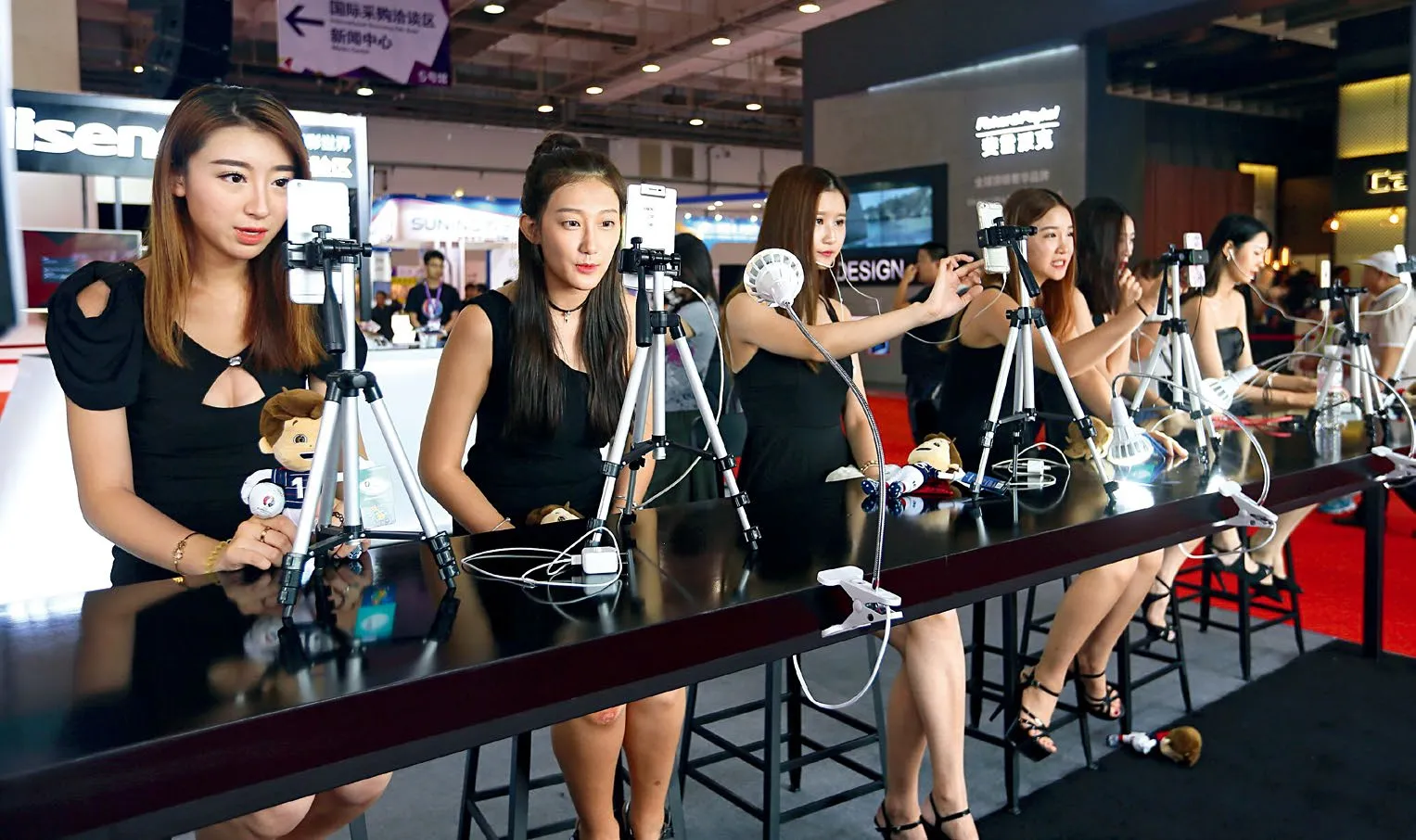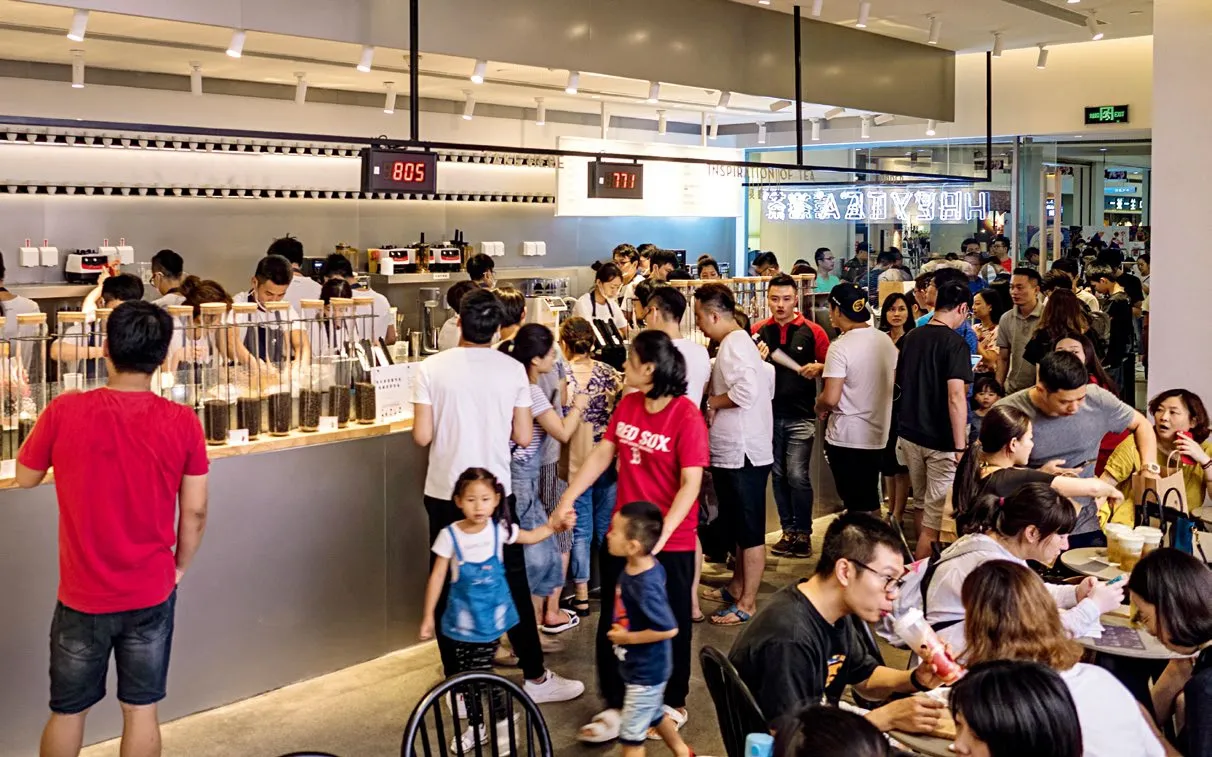‘INTERNET CELEBRITY ECONOMY’BOOMS IN CHINA
2018-01-13ByWangJiping
By Wang Jiping
Online celebrities begin to influence consumption trends of young Chinese shoppers
At 11:50 p.m. on a Saturday night, Yu Qian, a 32-year-old from Beijing, woke up to the sound of her alarm clock. She wasn’t waking up late at night to work, but to make sure she didn’t miss a Taobao promotion on Tmall (a Chinese online shopping service). She intended to purchase a Mistine (a Thai make-up brand) lip balm. “This lip balm is a top-selling brand recommended by many a makeup blogger,” Yu explained. “So I wanted to try it.”
At nearly the same time,35-year-old Beijing resident Sun Gang was boarding a plane bound for Singapore. Since he had never traveled to Singapore before, Sun had carefully planned his journey. In a mobile phone app focused on navigation and traveling, he was able to access unique and useful information on where to go, what to do and how to travel economically in Singapore.
“What I have planned to buy are local specialties recommended by senior internet celebrities,” Sun said. “I have followed live-streaming and videos of the travels of quite a few internet celebrities on Youku[a Chinese video streaming website]. I know a lot about planning trips.”
With the rapid development of the internet and portable devices such as mobile phones and tablets, more and more young people in China are attracted to products recommended by internet celebrities. Such celebrities have become an important part of Chinese patterns of consumption.
More Than Just Products
“There are several reasons why internet celebrity products tend to be so popular in China,” said Cao Lei, director of the China Electronic Commerce Research Center (CECRC). “On the one hand, China’s e-commerce has developed rapidly. On the other hand, the cultural elements associated with such products are very attractive to young consumers.”
Cao said that internet celebrity products first became popular in 2016.
“As a matter of fact, the topselling products on the internet,such as Heekcaa tea, VR glasses and capsule coffee machines,all have similar features. First,they are affordable. Second, they have certain new, special and unique elements, which resonate with the curiosity of young consumers. Third, they matchpopular consumption trends,especially among young online consumers.”

Online celebrities broadcast themselves using their mobile phones at the China Consumer Electronics Expo 2016 in Qingdao, Shandong Province, on July 8, 2016.

A long queue in front of a Heekcaa tea shop, which is very popular on social media, in Guangzhou, Guangdong Province.

A brand new Heekcaa tea shop opened in Suzhou,Jiangsu Province.
100,000
The number of Chinese internet celebrities with more than 100,000 followers increased by 57.3 percent from 2016 to 2017.
Lai Yang, president of the Beijing Circulation Strategy Research Institute, said that the recent, rapid growth of tourism has played an important role.
“Traveling to Southeast Asian destinations is more convenient and less expensive than traveling to Europe or America,” Lai said. “More and more Chinese tourists have chosen to travel to Southeast Asia. They would like to know more about their destinations,of course. Internet celebrities who are desperate for more fans take notice of that. They broadcast or live-stream the content that meets the needs of their followers. This kind of interaction has resulted in
both consumption and cultural communication.”
Meanwhile, according to Lai,this kind of internet celebrity communication is different than pop star endorsement advertising. Some internet
celebrities are ordinary office workers who do not receive
sponsorship fees for their online communication. They simply share what they like with their fans. Therefore, the popularity of internet celebrity products grows more organically and reliably than “pop star endorsed”products.
Fun, but Sometimes Painful
While internet celebrity products have brought a lot of fun and useful “strategies” to young consumers in China, they can sometimes be irritating to young consumers.
According to the 2017 China Internet Celebrity Economy Development Report, jointly compiled by iResearch and Weibo, the number of Chinese internet celebrities with more than 100,000 followers increased by 57.3 percent from 2016 to 2017. Meanwhile, the number of total internet celebrity followers increased to 470 million in 2017,a year-on-year increase of 20.6 percent.
“The data indicate that there is still great potential for the internet celebrity economy,” Cao Lei said. “But with the growth of the internet celebrity economy,some problems have arisen related to regulation. There have been cases where businesses have promoted poor quality products with the help of internet celebrities. Some consumers have been scammed.”
What’s more, as Lai Yang pointed out, internet celebrity consumption has also meant some young consumers have purchased products they don’t actually have any personal interest in.
“I don’t really like tea,” said Wang Lili, a university student in Beijing. “But Heekcaa [a tea shop] was so popular. In order to share with my friends online,I queued for more than an hour to buy a cup of Heekcaa tea in Beijing, even though I don’t even like it.”
